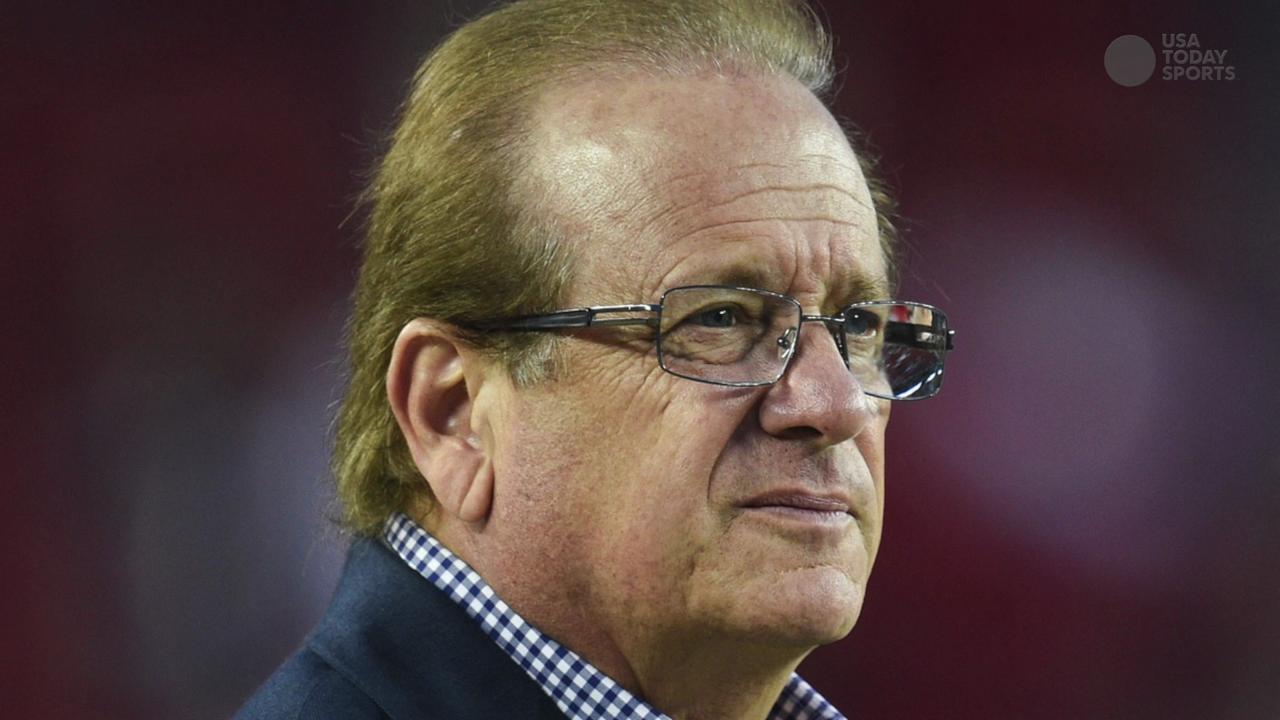Bell: NFL gets back to big business in L.A. shuffle

HOUSTON – This was hardly the usual script for NFL business.
Yet in the end, the NFL’s decision to select Rams owner Stan Kroenke’s plan for a lavish, $1.7 billion domed stadium in Inglewood as its answer for the Los Angeles market felt a lot like a classic, two-minute drive to the finish line.
A multi-billion dollar drive.
Owners voted 30-2 on late Tuesday in favor of the Kroenke deal, despite a recommendation from its esteemed Los Angeles Opportunities committee to pick the stadium deal in Carson that was presented by the San Diego Chargers and Oakland Raiders.
It almost never happens like that. Typically, when a committee – such as the six owners charged to evaluate the merits of the competing Los Angeles proposals – does the heavy lifting that leads to a recommendation, the rest of the owners follow suit.
But there was no rubber stamp here. This wasn’t like tweaking instant replay.
“I’ve never been in a meeting where that many people voted against what the committee recommended,” said Dallas Cowboys owner Jerry Jones, one of the most active owners – and not on the L.A. committee – in support of Kroenke’s plan.
What happened?
It was a case where the NFL’s full body of ownership took ownership.
Although the L.A. committee voted 5-1 in favor of the Carson project, it became evident quickly the majority of owners carried a different perspective. The votes for Carson, and 24 were needed for approval, weren’t there.
The tide turned with the first tally, a secret ballot that resulted in 20 votes cast for Inglewood.
Simply put, Kroenke’s plan won the day because the prospect of a signature stadium, surrounded by extensive real estate development on a 300-acre site, presented more robust opportunity for revenue.
No surprise there. Cha-ching. Money talks. That much is indeed typical NFL business.
Or, as New York Giants co-owner Steve Tisch put it, “It’s a very important day for the NFL.”
The deal – for which Jones said that Kroenke has committed $2.6 billion for the stadium slated to open by 2019 and as much as $15 billion for the real estate ventures -- includes a compromise that provides for the Chargers, or perhaps the Raiders, to partner with the Rams on the stadium.
At the same time, the measure allows Chargers chairman Dean Spanos a huge dose of leverage – and $100 million towards construction of a new stadium – if he decides to keep his franchise in San Diego with a taxpayer-supported project. Spanos will have a year to determine if he wants to partner with Kroenke. If he opts not to pursue L.A. – which I’d suspect is doubtful – Raiders owner Mark Davis would have a year to accept a similar offer.
Spanos, whose Carson project enlisted a push from Disney CEO Bob Iger, may not have wound up with his desired option to win the market over Kroenke. But after pursuing a new stadium in San Diego for 14 years, he’s obtained significantly more juice for a potential last-gasp effort. It’s conceivable that the Chargers take the matter to voters on the November ballot, but public sentiment would have to change significantly given that polls indicated a 2-to-1 margin against taxpayer support for a Chargers stadium.
Still, at least it’s one of Spanos’ options. And in a sense, it’s typical NFL business to present communities with some sort of incentive to keep a team that could flee the market.
Meanwhile, the twists and turns on the journey to L.A. seemed to reflect political mechanisms that come into play among team owners, if not the cold competition. That Kroenke announced his intent to build a stadium in Inglewood in December 2014 before even applying to relocate his franchise from St. Louis, was seemingly a threat to go rogue, and is said to have angered some fellow owners.
Ultimately, enough owners came around to support Kroenke’s deal – and the compromise that involved the Chargers as a potential partner as Jones proposed in a resolution for owners last week.
Compromise, for the sake of a bigger deal.
In the end, typical NFL business.
Follow Jarrett Bell on Twitter @JarrettBell.